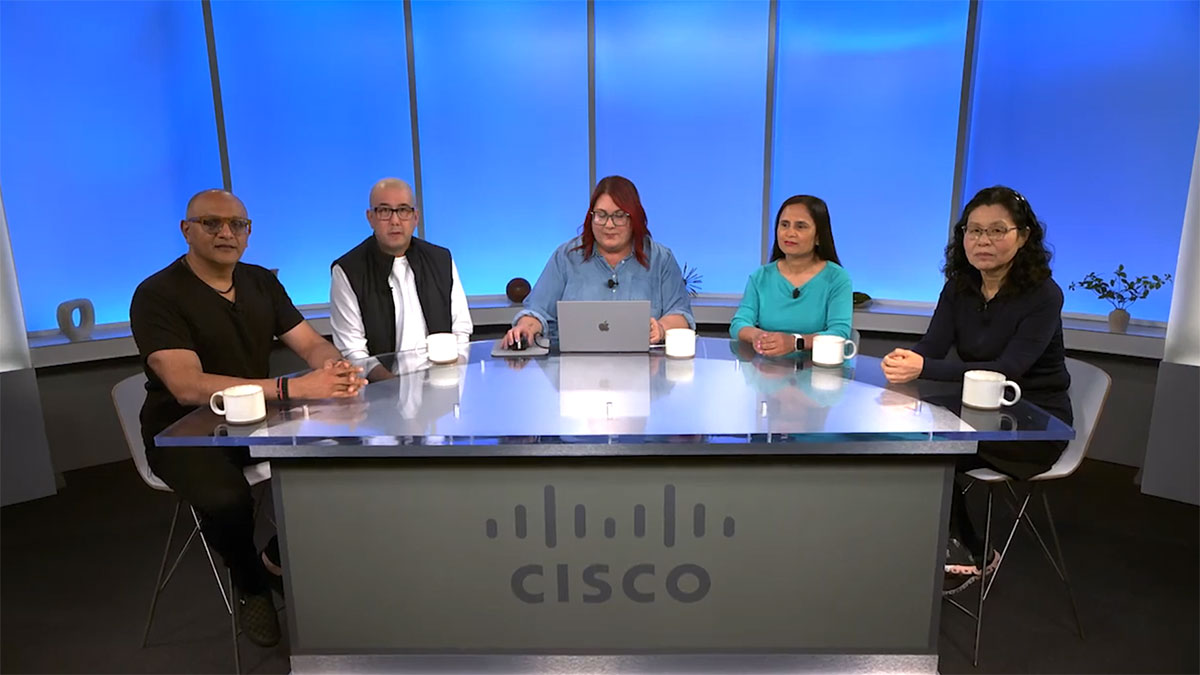PARIS, France, January 25, 2007 - Today, the Prime Minister of Lebanon Fouad Siniora, the United States Secretary of State Condoleezza Rice and a group of American business leaders announced progress in an effort to spur economic growth and stability in Lebanon.
Prime Minister Siniora, Secretary Rice and the business leaders met at Paris III, an international donor conference in the French capital aimed at identifying ways to build a more promising future for the people of Lebanon. There, they discussed the crucial role of public-private partnerships in helping to rebuild Lebanon for a better future through expanding the reach of education and workforce training, job creation and building technology infrastructure.
Four of the business leaders, Craig Barrett, Chairman, Intel Corporation; John Chambers, Chairman and CEO, Cisco Systems, Inc.; Yousif Ghafari, Chairman, GHAFARI, Inc.; and Dr. Ray Irani, Chairman, President and CEO, Occidental Petroleum Corporation, formed the U.S.-Lebanon Partnership in September, at the request of United States President George W. Bush.
Additionally, Microsoft CEO Steve Ballmer was introduced as a new member of the Lebanon Partnership leadership group today.
"Lebanon faces real and substantial challenges in the wake of the recent conflict, with damages to homes, schools and other critical infrastructure costing billions of dollars. The U.S.-Lebanon Partnership is a great friend to the people of Lebanon, and a leader in the effort to marshal international support for the rebuilding efforts. We will continue to work with the leaders of the Partnership to find a more stable and prosperous future for the Lebanese people," said Fouad Siniora, Prime Minister of Lebanon.
"The United States is deeply concerned about the people of Lebanon and is committed to finding enduring solutions for the challenges they face," said U.S. Secretary of State Condoleezza Rice. "The U.S.-Lebanon Partnership is making important progress towards that goal, helping to lay the foundation for sustained economic growth and long-term stability."
Today, the Partnership announced initiatives in five key areas critical to creating sustainable economic growth in the region, which include crisis relief and response, information communication technology (ICT) infrastructure, workforce training, job creation/private sector revival and connected government.
Crisis Relief and Response
The Partnership is working with proven non-governmental organizations (NGOs) in Lebanon to help address the immediate needs of adequate housing, education and worker training. Today, the Partnership announced a series of steps being taken by the NGOs which are funded by the Partnership, including:
- Habitat for Humanity (HFH) will assist approximately 50 families to repair damaged homes and will establish a new Habitat Resource Center to help with ongoing disaster response programs, directly and indirectly helping more than 3,500 people.
- The United Nations Children's Fund (UNICEF) will accelerate efforts to return normalcy to children and families, with a focus on improving health and nutrition, child protection and education. As part of this, UNICEF will rehabilitate 10 schools in southern Lebanon, relying in part on youth volunteers brought in from affected areas and across the country.
- American Near East Refugee Aid (ANERA) will distribute Partnership funds among 10 southern Lebanese community-based organizations to link the neediest populations to educational and worker training materials through ICT.
- Mercy Corps will rehabilitate 10 schools, expand their extra-curricular offerings, provide IT access and computer training and encourage school engagement among parents and other community members.
ICT Infrastructure
Currently, Lebanon is burdened by a nascent and inefficient ICT infrastructure. The Partnership has pledged to support development of an International Gateway and an Internet Exchange Point to Lebanon which will help develop Lebanon's economy by enabling open communications in a competitive environment. This support may include donation of equipment, training and consulting. The International Gateway will offer improved international Internet connectivity for Lebanon, and the Internet Exchange Point will strengthen local infrastructure to stimulate local economic development. This project has the potential to improve the speed and efficiency of Internet traffic flow throughout Lebanon and help decrease costs.
Assistance also will be made available to the Lebanese Telecommunications Regulatory Authority in establishing an enabling environment for ICT in Lebanon that can promote innovation, investment and infrastructure development.
Workforce Training
Sustainable economic growth in Lebanon requires a skilled workforce and businesses built to compete in a global marketplace. The Partnership is working to identify and place 500 Lebanese interns in Lebanon and the United States over the next three years. Members of the Partnership have initially committed to placing 115 interns within their own companies.
In addition, Cisco has pledged to double the number of its Networking Academies in Lebanon. The Networking Academy program prepares students for IT jobs through a combination of online, e-learning curriculum and hands-on lab work.
Job Creation / Private Sector Revival
Growing Lebanon's private sector is the linchpin to creating jobs for the Lebanese people. Over the past two months, the Partnership has conducted extensive outreach and worked with local stakeholders to identify private sector projects that could be accelerated through injection of capital and joint ventures with companies worldwide. The result of this outreach is an initial list of more than 100 promising projects in six key industries - technology, tourism, banking and finance, agribusiness, health care and manufacturing - which will contribute to job creation in Lebanon.
The project acceleration phase will start in mid-February, and the Partnership will work with the United States Chamber of Commerce, Overseas Private Investment Corporation and the Near East Consulting Group to create joint ventures between Lebanese businesses and compatible foreign business partners and provide needed funding and insurance incentives. This will be done with the help of key Lebanese business development organizations including Kafalat, IDAL and the AmCham.
Connected Government
Technology has an increasingly important role to play in the delivery of government and social services to the Lebanese people. For this reason, the Partnership will enable on-line community access in Lebanon by providing on-line access points that offer social resources such as job training, healthcare information, on-line education, global resources such as on-line libraries and other rich media content and government services to Lebanese citizens.
"Microsoft has been working with Lebanon's government and NGOs for years, collaborating on education projects, on efforts to expand technology access, and on e-government solutions," said Steve Ballmer, Microsoft CEO. "So we're pleased to be involved in the U.S.-Lebanon Partnership Fund. This builds on our ongoing efforts to help foster stability and promote development across the Middle East."
Microsoft supports access to technology and IT skills training for schools and communities through its flagship citizenship programs Unlimited Potential and Partners in Learning. In Lebanon, Microsoft works to help students, orphans, elderly and people with disabilities, and to help small and medium businesses thrive.
"Lebanon will only be rebuilt through actions focused on improving the educational and economic infrastructure," said Craig Barrett, Chairman, Intel Corporation. "The first $1 million in grants from the U.S.-Lebanon Partnership Fund will enhance the existing relief efforts. By collaborating with proven NGOs, our goal is to accelerate meeting the immediate needs of adequate housing, education and worker training."
"Only occasionally do you have an opportunity to make a difference in a person's life, much less in a community. Through this partnership, we have a chance to make a difference in a country and perhaps even a region," said John Chambers, Chairman and CEO, Cisco. "After visiting Lebanon, I have seen first-hand the serious challenges facing the country. Through the efforts of this Partnership, we can make a meaningful contribution not just for rebuilding Lebanon but to help position the country for leadership in the future. Through the unique combination of public-private partnerships and the support of the global community, together we can accomplish what none of us can do alone. We cannot underestimate the challenges associated with this endeavor, nor can we afford to ignore the great needs facing this country and all of its citizens. The time to act is now."
"It is my personal goal to help Lebanon return to the country I knew growing up," said Yousif Ghafari, Chairman, GHAFARI, Inc. "Lebanon used to be called the Switzerland or the Paris of the Middle East, there was commerce and tourism: people of different religions lived as peaceful neighbors. We were hospitable and we were entrepreneurs and our small country welcomed the world to its sophisticated night life, its beaches and its mountain resorts. The world has changed, and Lebanon has lost its luster, but its people have not lost their will to live in peace, tolerance and prosperity. I firmly believe that with our human capital, outstanding educational institutions and the Lebanese entrepreneurship we once again can make Lebanon an example for the region where different faiths and cultures can live together in peace and harmony, an oasis of tolerance and prosperity in a volatile and increasing intolerant region of the world. We cannot lose this generation to ignorance, lack of economic opportunity and a loss of hope, if we do, we have lost Lebanon. We cannot have peace without the hope of a future for the young people, they have no comfort in the memory of Lebanon as it was, they need education and opportunity and they will make a new Lebanon. The Lebanon they make, however, is up to us, they can move to the light, or they can move to the darkness of religious and cultural intolerance, and blind and violent hatred of all things Western. They can work for peace, or make war; my wish, and the reason I am participating in this effort, is to work for peace. Every small step toward peace is a step away from war."
"There has never been a more important time for the American people to show their support and generosity to those in need in Lebanon," said Dr. Ray Irani, Chairman, President and CEO of Occidental Petroleum Corporation. "I continue, along with Occidental, to very actively support a wide range of educational, health care and charitable organizations throughout the Arab Middle East, including Lebanon. It remains my hope that the work of the U.S.-Lebanon Partnership, coupled with the important contributions of numerous other non-governmental organizations throughout the United States and across the globe, can assist Lebanon in achieving a more rapid recovery and help in promoting lasting peace and stability in the region."
For more information about the partnership and contributing to the effort, visit www.lebanonpartnership.org




